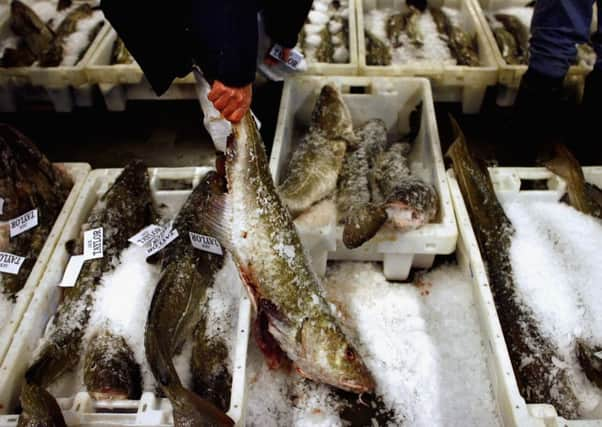Bertie Arnmstrong: Careful legislation needed for fishing industry


Fishing is so very important to Scotland and one of our country’s greatest renewable natural resources. When the oil and gas has gone, we will still have fish in the sea and a fundamental keystone in ensuring our nation’s food security, plus a sound pillar to underpin economic growth.
This is why the looming Scottish Parliamentary elections are so crucial to our industry and why we need policies that will help the industry prosper. With this in mind, the Scottish Fishermen’s Federation (SFF) would like the next government to address several key priorities.
Advertisement
Hide AdAdvertisement
Hide AdOne of these is the future management of the discard ban, or landing obligation as it is often known. Under the regime, which is currently being phased in, fishermen will no longer be able to discard fish at sea but instead will have to land all their catches. No-one hates discarding more than our fishermen, but as things stand, the regime has the potential to do immense harm to our fleet because its management has not been fully thought through.
A classic example is the impact of so-called “choke stocks”, which are a particular problem in the demersal mixed fisheries where a variety of species are caught at the same time. Under such a scenario, if a species with a low quota, for example hake, has its allocation fully taken, boats will not be able to carry on fishing despite having plenty of quota left for other species such as haddock.
So, this would be our first request to the next government, and also to the opposition parties who will hold them to account: please develop a practicable and workable management regime for the discard ban. This is a real cloud hanging over our fishermen, which makes it very difficult to plan ahead and make future investment decisions with complete confidence.
Another request would be to make evidence-based decision-making the heart of how the government operates. Sadly, this has not been the case in the recent past when it has come to the management arrangements for Marine Protected Areas (MPAs).
Fishermen fully recognise the important role of MPAs in marine conservation but they must be designated on the scientific evidence, not on arguments based on emotional rhetoric.
If the science says there are marine features that need protecting, then while we may not like the short-term implications for fishing, we would nonetheless accept such protective measures because of the importance of our marine environment.
There must always be sensible balance based on the science – we must not take the superficial option and let populist politicking become the driving force behind decision-making. The government of the day must meet its responsibilities to our fragile fishing communities and look after their welfare too.
One a more general note, there is much good news surrounding our industry. After an incredibly difficult 15 years or so, it is satisfying to see that the hard work and sacrifices of our fishing industry is now bearing fruit in terms of stock recovery. The majority of stocks of interest to our fishermen are in good health or increasing.
Advertisement
Hide AdAdvertisement
Hide AdThis includes North Sea cod – and there is even talk of this iconic species being entered for Marine Stewardship Council (MSC) ecolabel scheme in the near future.
Many other of our key stocks are already part of the MSC programme, including haddock, saithe, herring and mackerel. Scotland is becoming synonymous with responsible fishing. This is good for Scotland and good for the Scottish seafood brand.
The healthy status of our stocks has in turn resulted in an upsurge in new boat building – the best possible expression of industry confidence in long-term sustainability.
In short, we now have a very big opportunity to build upon these successes and ensure the continuing sustainable growth of our stocks, the development of the best fisheries management measures and the expansion of new markets for our seafood. But to do so, we must adopt an outward-looking approach to the way we do things, recognising the international arena in which we operate in.
Scottish fishing has a great future – all we need is the right regulatory framework to ensure we meet its full potential. Indeed, in the past the most effective management decisions have always come when government and industry work together.
• Bertie Armstrong is chief executive of the Scottish Fishermen’s Federation